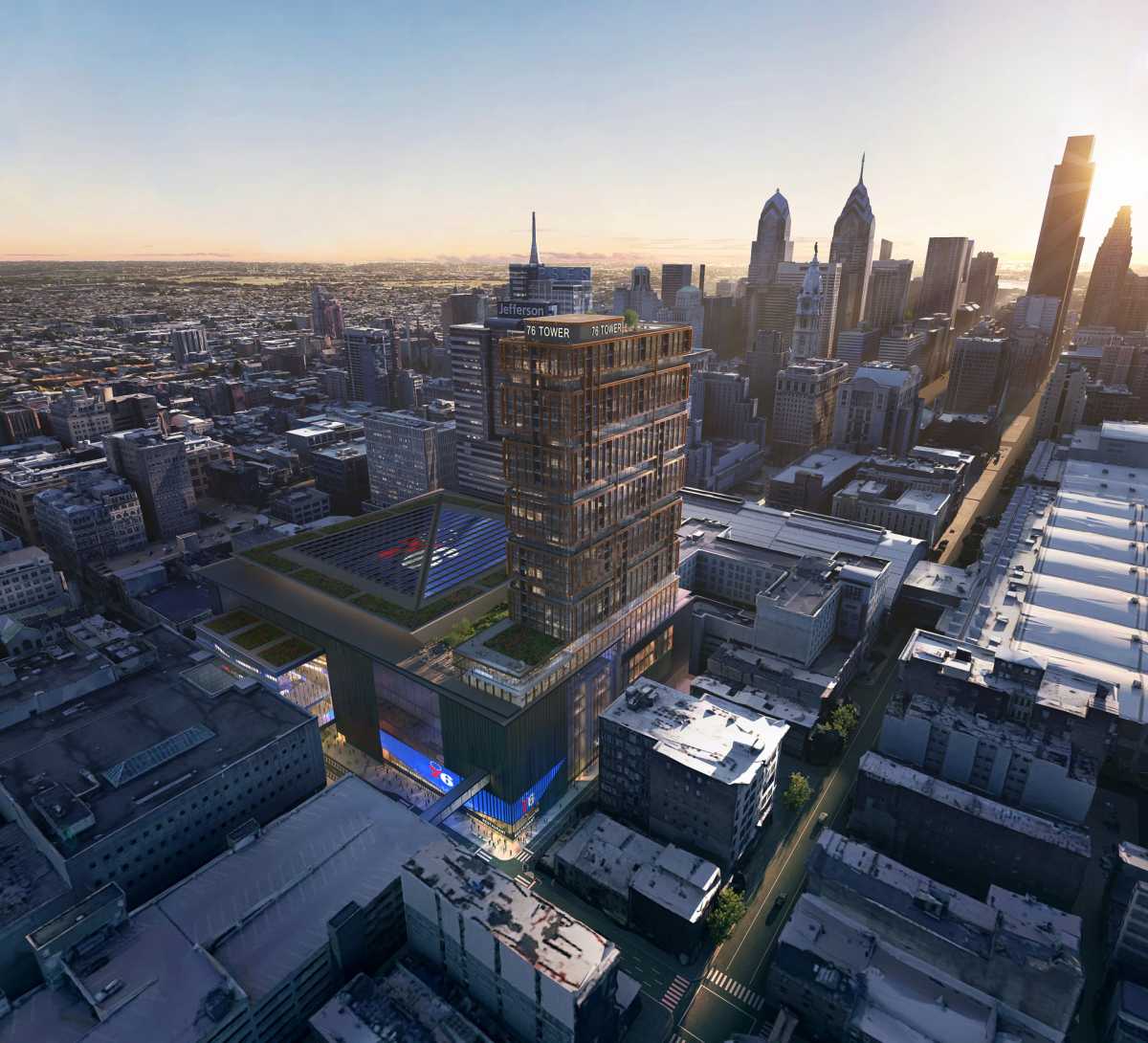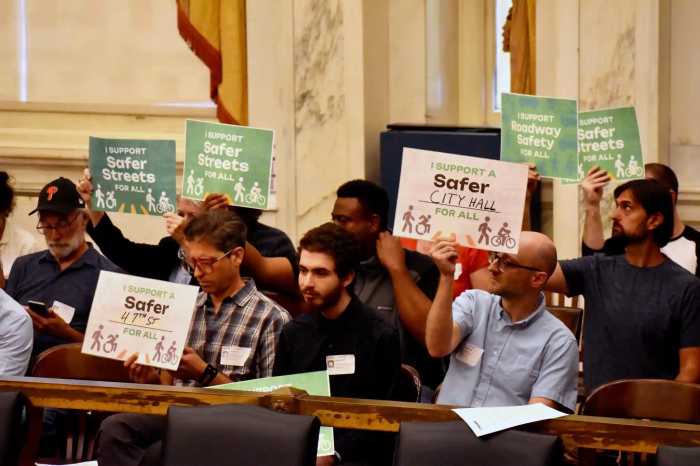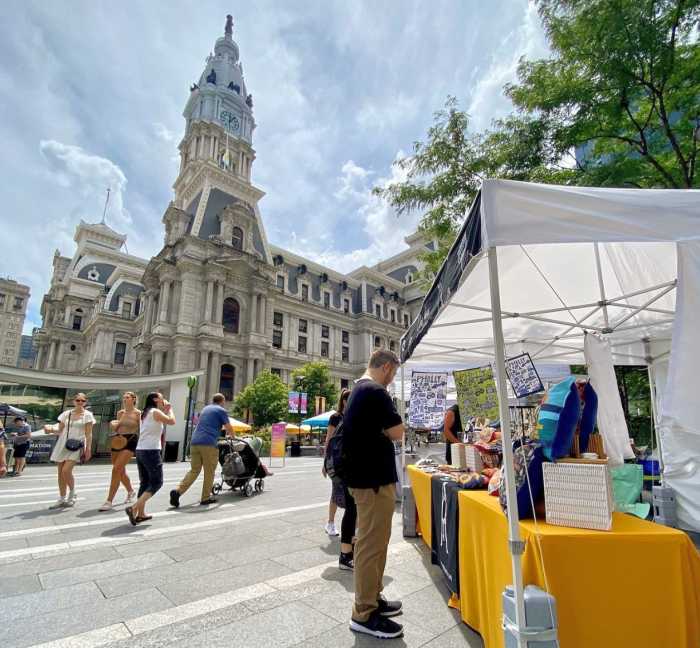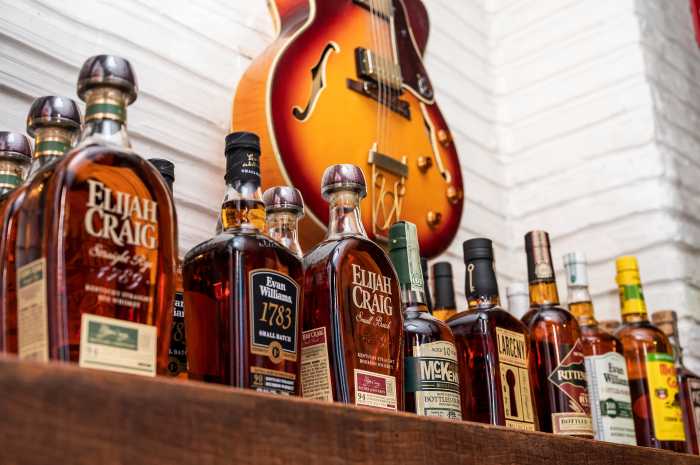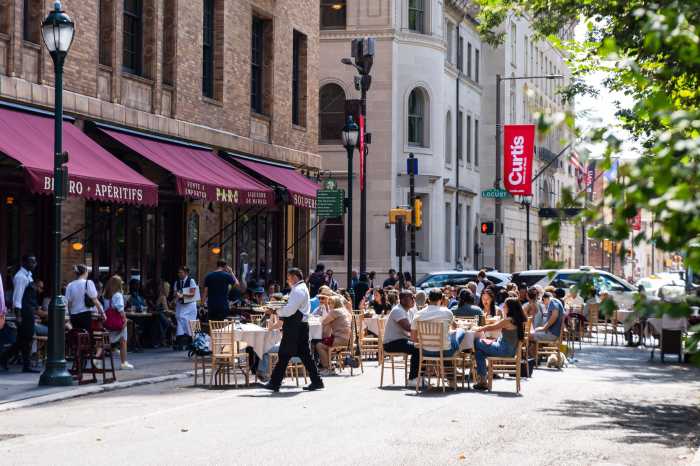Mayor Cherelle Parker, despite strong resistance from community leaders in Chinatown, threw her support behind the 76ers proposed Center City arena Wednesday and said her team is preparing to send legislation to City Council authorizing the project.
Her backing does not guarantee the 18,500-seat East Market Street arena, known for now as “76 Place,” will be built; however, it provides a significant boost for the proposal, and opposition from Parker may have doomed the project.
Little information about the agreement between the mayor’s office and the developers was immediately available.
During a closed-door City Hall briefing with community stakeholders, Parker said the deal includes a $50 million community benefits agreement, according to John Chinn, executive director of the Philadelphia Chinatown Development Corporation, who attended the meeting. The 76ers have long proposed investing that amount of money in the surrounding area.
In a nearly 4-minute video, posted to social media Wednesday afternoon while the meeting was ongoing, Parker said additional details will be shared shortly. A news conference is expected early next week, administration officials said, and the mayor plans to host town hall-style sessions around the city to discuss the plan.
Though reporters waited in a hallway for her to emerge from the session, which lasted just over an hour, Parker did not address the media.
“This is a historic agreement,” the mayor said in the clip. “It is the best financial deal ever entered into by a Philadelphia mayor for a local sports arena, and I wholeheartedly believe it is the right deal for the people of Philadelphia.”
She said the development “represents the start of an unprecedented revival of Market Street” and directly addressed the concerns of Chinatown residents and business owners.
“To the good people of Chinatown, please hear me. I see you. I listened to you,” Parker said. “I want your rich and vibrant community and proud history to not just survive, but to thrive.”
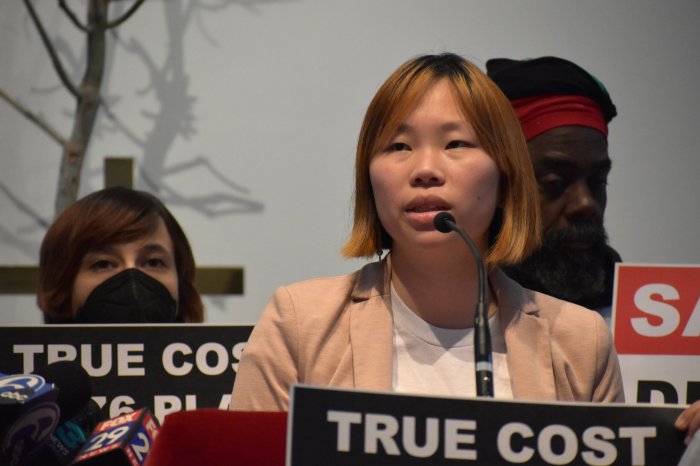
Moments after the private meeting ended, Chin said he was disappointed in the decision and anxious to review the agreement between the city and the team.
“I think it was what we expected based on how Chinatown has been treated historically,” another attendee, Vivian Chang, executive director of Asian Americans United, said.
Opponents of the arena gathered Wednesday outside City Hall and vowed to take their fight to Council.
“This was never about one person, and this fight is far from over,” Debbie Wei, a longtime Chinatown community leader, said in a statement. “We are going to fight this, and we are going to the mat. It’s on.”
A 76ers spokesperson told Metro that the organization is “grateful to Mayor Parker and her team for their time and diligence in evaluating our proposal and look forward to advancing to the next steps with City Council.”
Councilmember Mark Squilla, whose district includes the proposed arena site, has promised to share any legislative package with the public at least 30 days before formally introducing it. His chief-of-staff, Anne Kelly King, confirmed Wednesday that he still intends to uphold that pledge.
Following introduction, the bills would be subject to at least one hearing before a final vote at a Council session. Lawmakers could amend the legislation along the way.
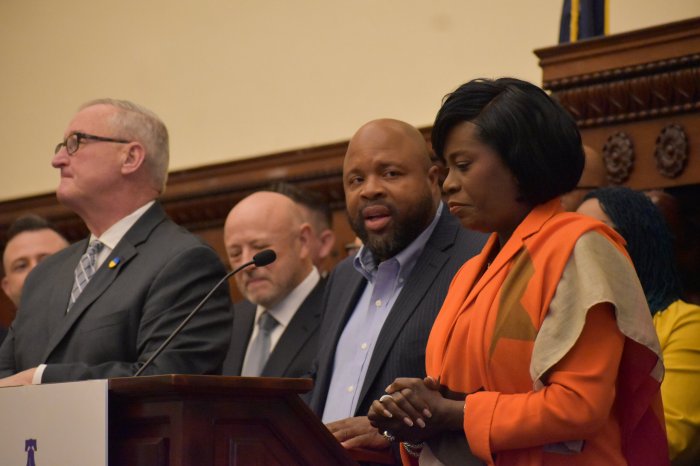
Among the most fervent supporters of the arena has been the Philadelphia Building Trades Council, a group of construction-related labor unions that helped power Parker’s successful mayoral campaign.
“I am imploring City Council to look past the sensationalistic headlines and support the development of 76 Place on East Market,” said Ryan Boyer, the coalition’s leader and chair of Parker’s transition team, in a statement. “Failure to do so could result in the franchise leaving for Camden. Don’t let it happen.”
In recent weeks, New Jersey officials have been courting the team, reportedly offering a site on the other side of the Delaware River and hundreds of millions of dollars in tax incentives.
Parker’s decision comes less than a month after the release of a trove of city-commissioned studies about the plan. The analyses determined that the project poses a “significant potential risk to Chinatown’s core identity” and that Philadelphia can support two indoor arenas.



